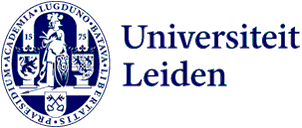
Honours students on fieldwork: ‘The police don’t need to be doing dances on TikTok’
Interviewing pupils and brainstorming with judges and lawyers. Students from the Trust in the Rule of Law honours course discovered how pupils at the Edith Stein College school in The Hague see institutions and how the law works in practice.
Rather than just do literature research, for this honours course the students went into the field themselves. That was a welcome change, say law students Deniz Poelsma and Crista Hardeman. Leiden Law School works together on this course with Edith Stein College, a secondary school in The Hague. The students discussed with the pupils to what extent they trust institutions such as the police, the municipality and the courts.
Police ask for ID
‘The pupils were candid about their experiences,’ says Crista. ‘Several young people from a migrant background said the police often ask them for ID on the street. This means they sometimes see the police not as an authority that is there to help them but as one that views them as a suspect.’ It struck Deniz how important representation was to the pupils. ‘Some said they wanted to go to university but wondered whether universities weren’t really white. That really got me thinking. At that age I was concerned with what to study. Colour at universities didn’t cross my mind.’
Demelza Pelswijk, a social studies teacher at Edith Stein College, is enthusiastic about working with the students. ‘In my lessons we already look at institutions and how pupils see them, but in the discussions with the students, the pupils looked at these institutions from another perspective, that of how much trust they have in them. We don’t often get around to this in class because of the tight schedule. The pupils liked being able to give their opinion and reflect together on their experience of institutions and felt they learned from it too. For me as a teacher, this course was a new learning method that allowed us to forget the textbooks for a while and yet still achieve our learning objectives.’
TikTok and Instagram
An important question was how institutions such as the municipality and the policy can reach young people. ‘The pupils said they mainly get their information from social media like TikTok and Instagram but many institutions have little or no presence there. Young people often have no idea what the municipality can do for them.’ She realised that the pupils were very media aware. ‘I was impressed with how critical they were about the information on social media and its reliability.’ Her recommendation to organisations: look at things from young peoples’ perspective and provide information on your channels. ‘But young people don’t want the police to start dancing on TikTok. That would undermine their authority. They’d like to see a video or vlog of what it’s like to be a police officer, for example. That would make it easier for them to put themselves in the police officer’s shoes.’
‘The young people said they mainly get their information from social media but that many organisations have little or no presence there.’
Discussion techniques
Deniz found the discussions valuable for not only the content but also the form. ‘We held the discussions while walking from their school to our campus. We did this deliberately because you are more likely to go into more depth when walking than sitting down. Practising discussion techniques was one of the big advantages of this course for me. My studies have been very theoretical up to now so it’s good to learn this skill.’
Guest lectures by a judge and lawyer
Another advantage was the lectures by guests from the field. They spoke to a judge, a lawyer, a neighbourhood warden and the youth ombudsperson in The Hague. Deniz: ‘It was cool to have lectures from these experts who could tell us about the law in practice. Sometimes things go wrong, like with the Youth Care Act. Youth care was decentralised to respond better to people’s needs, but that’s not how it turned out at all.’
Text: Linda van Putten
